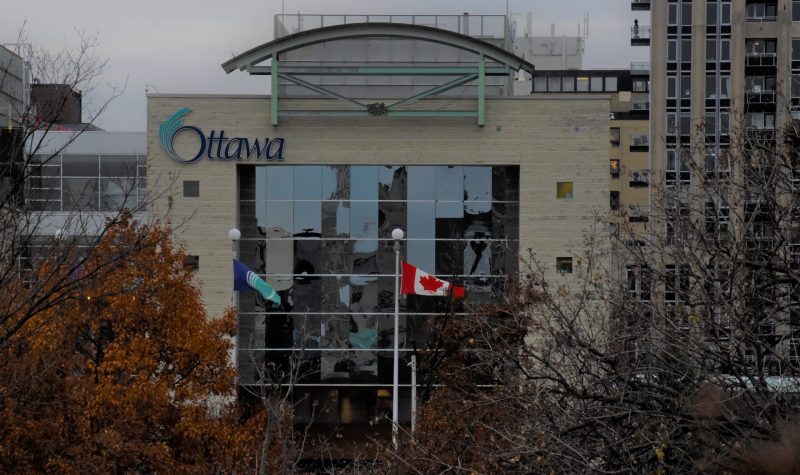Residents of Ottawa now have the opportunity to develop the city's first ever Anti-Racism Strategy.
The city announced last week that public engagement sessions would help to inform the strategy, along with the data from their What We Heard report. There are two virtual town hall meetings planned for Jan. 15 and Jan. 20, the first of which is intended for racialized residents to voice their thoughts on the matter.
Rideau-Rockcliffe Coun. Rawlson King worked with other city councillors to propose an Anti-Racism Secretariat in the 2020 budget, and says he’s happy to see the strategy finally come to fruition.
King won Rideau-Rockcliffe ward in a 2019 by-election and serves as Ottawa’s first and only Black councillor. In an interview with CHUO’s Denise Isaacs Jan. 11, he highlights a racist incident in his ward weeks after his election as a prime example of why the strategy is essential.
“I was the first elected Black official in the city's history, and there was a lot of elation in the racialized community, Black community, Indigenous community—across the board,” says King. “And then, literally, the next month there was a racist incident in my ward, where a family in my ward had the N-word spray-painted on their garage door. It was a very clear indication that racism, unfortunately, is alive and well.”
The Anti-Racism Secretariat is a newly created office intended to address systemic racism throughout the city. The Anti-Racism Secretariat is charged with overseeing the implementation of the Anti-Racism Strategy, which is being built in phases.The public engagement process is entering its third phase with the town hall meetings.
Phases one and two took place from January to August 2021 and included insights from a diverse range of communities, according to the city. The results of the first two phases were released in the What We Heard report in September 2021.
The report contained data from 601 participants and found concerns in six key areas: employment equity, economic development, governance, housing, health outcomes and youth development.
Although the report hinted at over policing negatively impacting marginalised communities, it didn’t specifically highlight this as a concern.
Robin Browne, founder and co-lead of 613-819 Black Hub, is worried the Anti-Racism Strategy may not address systemic racism in the Ottawa Police Service (OPS).
“In the priorities they've come up with, there is no mention of safety and security in general, and no mention of the Ottawa Police Service at all,” says Browne.
Browne is attending the town hall planned for Jan. 15 and says he will ask the city how they will address racism in the police service.
Browne has spoken out about the OPS on several occasions, most recently regarding the budget increase they received for 2022. He says if the city’s Anti-Racism Strategy isn’t built with policing in mind, it won’t work because the OPS is “intimately involved” in the implementation of city programs.
“It's… absolutely clear what the consequences will be in terms of the police,” says Browne. “They'll continue to get their multi-million dollar increase every year, and they'll continue harming and killing Black and Indigenous people, that'll be the direct result for sure.”
Browne asserts that the OPS has engaged in “layered policing,” a response by police to the "defund the police" movement.
Layered policing is a response to the defund police movement that sees police forces increase the number of officers and their influence in social service delivery.
Browne says an example of this is the way the OPS budget reduction is being handled. In late November, the OPS 2022 budget was approved for $2.1 million less than initially requested. A motion from Coun. Jean Cloutier dictated that the $2.1 million would be shifted to “community groups.”
The community groups receiving the money will be chosen by the guiding council which oversees the Alternative Mental Health Response, a plan formulated by the OPS in January 2021.
Browne says such behaviour is contrary to the calls to action from members of Ottawa’s marginalised communities, namely for police to be less involved in non-police services.
Suzanne Obiorah is the city’s director of Gender and Race Equity, Inclusion, Indigenous Relations and Social Development. In an interview with CHUO this week, she explains the Anti-Racism Strategy will include “concrete solutions” proposed by residents involved in the consultation process.
“The strategy is very much informed by the experiences that racialized communities have faced, and is in response to the systemic racism that exists within our systems and structures,” says Obiorah.
Obiorah indicates that the What We Heard report contains insights from stakeholders and residents from “communities with various racial and social identities” who identified key areas of concern.
Although the police service isn’t identified specifically as an area of concern in the report, Obiorah says the Anti-Racism Strategy will address systemic racism in Ottawa’s city services.
To register for the upcoming virtual town hall engagement sessions and voice your thoughts, visit engage.ottawa.ca.
Listen to the CHUO story below:
- With files from Denise Isaacs


